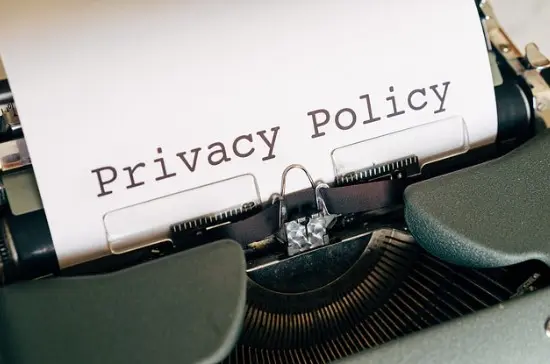The California Consumer Privacy Act (CCPA) is a comprehensive consumer privacy law that was enacted in 2018 and took effect on January 1, 2020. The law gives California consumers new rights over their personal information and requires businesses to be more transparent about how they collect, use, and store personal information.

An Overview of the California Consumer Privacy Act (CCPA)
The CCPA is arguably the toughest privacy law in the United States and has become a model for other states across the nation. The regulation outlines how businesses should handle the personal information of California citizens, including the right to request information about how their data is being used and the ability to request that data be deleted. Businesses must comply, regardless of whether they are based in California or not, as long as they collect or process the personal information of California residents.
The Purpose and Goals of the CCPA
One of the primary goals of the CCPA is to protect the privacy of California residents. It is designed to give consumers more control over their personal information and to make sure that businesses are transparent about how they collect and use that information. The law is also intended to encourage businesses to adopt better data privacy practices and to ensure that they treat consumers’ personal information with the respect and care it deserves.
The CCPA also intends to promote innovation and growth in the technology industry. The law aims to build trust between consumers and businesses by giving consumers more control over their personal information. This trust can lead to more innovation, as consumers are more likely to share their personal information with businesses that they trust.
Key Provisions of the CCPA
The CCPA has many provisions, some of which are considered the most comprehensive in the United States. For example, the law requires businesses to disclose what data they are collecting and for what purpose. It also allows California citizens to request that their data be deleted, and it requires businesses to disclose if they have sold any of a user’s personal information in the past year.
The CCPA also requires businesses to provide consumers with a way to opt out of having their personal information sold to third parties. This opt-out must be clear and conspicuous, and businesses must respect the consumer’s decision to opt-out.
Another key provision of the CCPA is the requirement that businesses provide consumers with equal service and price, regardless of whether they exercise their privacy rights. This means that businesses cannot discriminate against consumers who exercise their privacy rights, such as accessing their personal information or requesting that their data be deleted.
How the CCPA Differs from GDPR
The CCPA has several differences when compared to the European Union’s General Data Protection Regulation (GDPR), which went into effect in May 2018. One major difference is that the CCPA does not require businesses to obtain explicit consent from individuals to collect or process their personal data. Additionally, the CCPA has a narrower definition of personal information compared to the broader definition that is used in the GDPR.
Another key difference between the CCPA and the GDPR is the scope of the laws. The GDPR applies to all businesses that process the personal information of EU citizens, regardless of where the business is located. The CCPA, on the other hand, only applies to businesses that collect or process the personal information of California residents.
Despite these differences, the CCPA and the GDPR share a common goal: to protect individuals’ privacy and give them more control over their personal information. By implementing these laws, the United States and the European Union are taking steps to ensure that businesses are held accountable for collecting and using personal information.

Defining Personal Information under the CCPA
The California Consumer Privacy Act (CCPA) defines personal information as any information that identifies, relates, describes, or can be linked to a specific consumer or household. This includes a wide range of information, from name and address to online identifiers like cookies and IP addresses. Anything that can be used to identify an individual should be treated as personal information under the CCPA.
Personal information can be categorized into different types, including identifiers and contact information, biometric and geolocation data, internet activity and device information, and inferences drawn from personal information.
Identifiers and Contact Information
Identifiers and contact information include names, addresses, phone numbers, emails, social security numbers, and government-issued IDs. Businesses often collect This type of information to create a customer profile or complete a transaction. It is important to note that under the CCPA, this type of information is considered personal and subject to certain privacy protections.
Biometric and Geolocation Data
Biometric and geolocation data includes things like fingerprints, facial recognition, and GPS location data. This type of information can be used to track an individual’s movements and behavior and can be collected by businesses for various purposes, such as targeted advertising or fraud prevention. However, collecting and using this type of information is also subject to certain privacy protections under the CCPA.
Internet Activity and Device Information
Internet activity and device information can include browsing history, search history, and information about a device, such as its operating system, browser information, and IP address. This type of information is often collected by businesses to improve their products and services and for targeted advertising. However, the CCPA requires businesses to disclose the categories of personal information collected, as well as the purposes for which it is used, and to provide consumers with the ability to opt out of the sale of their personal information.
Inferences Drawn from Personal Information
Inferences drawn from personal information include any assumptions made about an individual based on their personal information, such as their interests, behaviors, or preferences. This type of information can be used by businesses to create targeted advertising or to make decisions about an individual, such as whether to offer them a loan or insurance policy. However, the CCPA requires businesses to disclose the categories of personal information used to make inferences, as well as the purposes for which it is used, and to provide consumers with the ability to opt out of the sale of their personal information.
Consumer Rights under the CCPA
The Right to Know
Consumers have the right to know what personal information is being collected about them, what it is being used for, and if it is being sold or shared with third parties. Businesses must provide this information to consumers within 45 days of a request. Businesses must also disclose all personal information that has been collected over the past 12 months.
The Right to Delete
Consumers have the right to request that businesses delete their personal information. Businesses must comply with this request unless there is a legal reason to keep the information. Businesses are required to inform consumers of their right to deletion when collecting personal information about them.
The Right to Opt-Out of Sale
Consumers have the right to opt out of selling their personal information. Businesses must provide a clear and conspicuous link on their homepage titled “Do Not Sell My Personal Information” that allows consumers to opt out of selling their personal information.
The Right to Non-Discrimination
Consumers have the right to not be discriminated against because they exercise their rights under the CCPA. Businesses may not deny goods or services, charge different prices, or provide a different level of service because a consumer has exercised their rights under the CCPA.
Business Obligations under the CCPA
Transparency and Notice Requirements
Businesses must provide consumers with a clear and conspicuous privacy notice describing the categories of personal information they collect and how it will be used. Additionally, businesses must create and implement a privacy policy that describes their data collection and processing practices. These policies must be accessible to consumers and updated annually. The experts at PPGS ™ can help you draft a privacy policy that is clear, concise, and transparent.
Responding to Consumer Requests
Businesses must create and maintain a method for consumers to submit requests to access or delete personal information or opt out of selling their personal information. Businesses must respond to these requests within 45 days and cannot charge consumers for these requests.
Data Security and Breach Notification
Businesses are required to implement reasonable security measures to protect consumer data from unauthorized access or theft. If a data breach affects California consumers, businesses must notify them within 72 hours after discovering the breach.
Third-Party Vendor Management
Businesses must ensure that any third-party vendors they work with are also complying with CCPA regulations. Businesses must have agreements in place that outline the prohibited uses of personal information and require the third party to also comply with the CCPA in their data handling.
Conclusion
Understanding the CCPA and what constitutes personal information is critical for businesses that operate in California. The CCPA, while complex, aims to give individuals control over their personal information and greater transparency over how businesses collect, use, and store their data. By staying up-to-date with the regulations and implementing measures to comply, businesses can ensure that they are protecting the privacy of their consumers. Schedule an audit with PPGS ™ to ensure your current policy and practices comply with CCPA.
